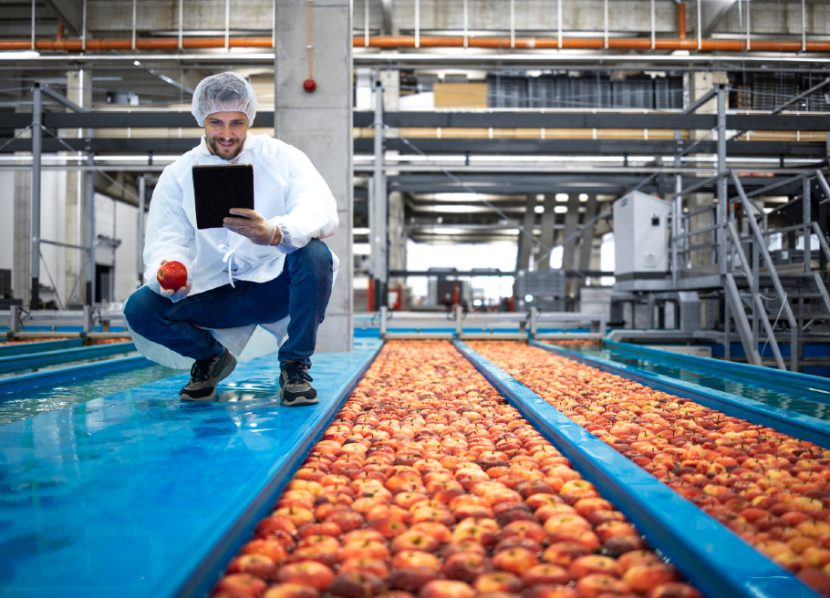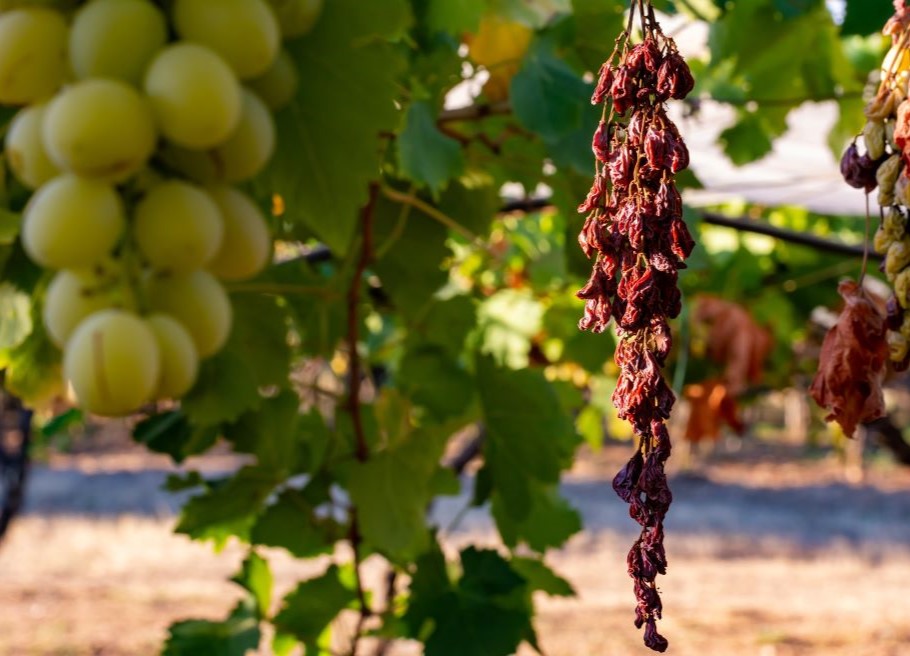Revolutionizing Food Safety: Insights from Dubai’s FoodWatch
Transcribed from the Eye on Food Safety with Dr. D Podcast
In a world where food safety concerns are ever-present, innovative solutions are crucial for ensuring the health and safety of consumers globally. The FoodWatch program in Dubai has paved the way for how technology can be used to enhance food safety among its stakeholders for compliance and management.
This article is based on a February 2024 Podcast discussion between Dr. Darin Detwiler, host of Eye on Food Safety with Dr D, and Bobby Krishna, Senior Food Safety Specialist at Dubai Municipality, who has played a key role in developing the FoodWatch program.
Today, we have not just inspections digitized, we have the entire framework of food safety digitalized
Food Safety Challenges Unique to Dubai
Dubai faces unique food safety challenges due to its heavy reliance on imports from over 160 countries, Krishna said. This makes its supply chain vulnerable to global market fluctuations and many other factors along the food supply chain.
Dubai imports more than 90 percent of its food … and we rely heavily on the logistics and the supply chain,” Krishna said. “As an ecosystem that makes us a bit vulnerable to the fluctuations in the global market, supply chains, and so on.”
Additionally, Dubai has an extremely diverse workforce consisting of many immigrants, and rapid urban growth across the city has further complicated food safety and delivery.
“We also import a lot of our workforce, so if you look at our typical food businesses predominantly foodservice … (but also) restaurants and hotels, they have a huge diversity in their workforce,” he said. “So, we are dealing with a lot of different foods and a lot of people dealing with unfamiliar foods with weather and other patterns of influence, like infrastructure.”
Food supply chains are complex by nature, but for Dubai this is doubly true. To monitor the food supply and ensure its safety, officials in Dubai created the digital platform FoodWatch.
What is FoodWatch?
FoodWatch digitized Dubai’s entire food safety framework, connecting businesses, suppliers, trainers, and more. It aims to enhance food safety compliance and management, leveraging technology to ensure a safer, more transparent, and efficient food supply chain.
Dubai began its digital food safety journey with the digitization of inspection data in 1998. This effort gradually expanded in scope and to other parts of the food supply chain, culminating in Food Watch’s formal establishment in 2017.
“When we started off with inspections in 1998, that technology skills transfer happened then in 2004, we digitalized our food import inspections and the food information itself while our database continued to grow. By 2013, we were looking at around 1 million distinct products that were coming into the city, and we were able to get all the laboratory information digitalized,” Krishna said.
“Inspections also continued (and) in 2015, we thought, okay, we’ve got the side where the regulatory information is digitalized, but we also see a terrific opportunity in getting businesses to go digital with their record keeping and documentation. We thought that it would be a collective win if we produced a model that everybody could use and that data utility would be far more than every business going with its own system. Ultimately this evolved into FoodWatch.
“Today, we have not just inspections digitized, we have the entire framework of food safety digitalized,” Krishna added.
Through FoodWatch, all food businesses register and are licensed digitally. The platform also connects entities like suppliers, enabling real-time risk factors and inspection data tracking. This creates a new level of transparency and streamlines information exchange across the entire food system.
Key FoodWatch Capabilities
The FoodWatch program facilitates comprehensive data management for more than 37,000 food businesses and service providers. It enables businesses to register products, manage licenses, and maintain digital records of all their food safety processes, thus enhancing transparency, compliance, and preventive measures against food safety risks.
Through its comprehensive approach, FoodWatch empowers businesses with real-time data exchange and connectivity, fostering a more secure and efficient food supply chain.
“Starting from 2019, we allowed (food businesses) to exchange information to create a certain deliverable. For instance, I could, as a food business, connect with a training center and seek training from a trainer who is already recognized in the system with a certain qualification,” Krishna said. “We can then allow the trainer to provide a certification after the training and then assign a score to that person, and instead of having a paper-based certification, you’ve got a digital traceable certificate assigned to the person who got the training.
Over the subsequent four to five years, FoodWatch can observe whether there is a trend between training and inspection performance. It can then more fully understand food safety risk factors as identified by inspectors, business managers, and the broader management of food businesses.
In addition, combining data from inspections with other sources, like pest control notifications, enables FoodWatch to identify persistent issues. For instance, this data-driven approach has allowed Dubai to reduce Salmonella outbreaks by training specific at-risk restaurants. Businesses can also access certified suppliers online.
Support for Smaller Operations
Transparency is a good thing when it comes to protecting the consumer, but these efforts sometimes come with a higher cost for the businesses producing and providing food products. Proportionally, smaller businesses tend also to pay a higher cost. But, according to Krishna, smaller businesses collectively benefit from a system like FoodWatch.
“Small businesses rely on a supply chain that is shared with all the big suppliers. An importer for meat products in Dubai, supporting a large business as well as small businesses. So, if the larger businesses take care of the supply chain, and make sure that they do the checks and the supplier at the back end is getting better, then their supplies to the smaller businesses also get better, right?” said Krishna.
“There is a shared value, and that’s exactly what we are trying to achieve with this kind of system,” he added. “Naturally, the service quality improves across the board.”
Krishna also explained that customized support is also provided to vulnerable groups facing challenges adopting modern technologies.
“The collective value is what I kind of emphasize, again, is what we’re targeting here, and smaller businesses are already benefiting. Do they have to spend extra money? Not really, I mean, they do not have to pay extra for certifications, because they have an existing framework that’s already giving them the benefit.”
By showcasing FoodWatch globally, Dubai hopes to transfer its expertise to other regions seeking innovative digital framework solutions for compliance. Continued partnerships will strengthen food safety worldwide.
To learn more about FoodWatch and listen to this Podcast: Eye on Food Safety with Dr. D., listen to a recording on Spotify or subscribe to our Premium Content to view this recorded Podcast together with all archived Podcasts and more.

-
 FeaturedRisk management
The Cost of a Breach: What a Cyberattack Could Mean for Food Safety Recalls
FeaturedRisk management
The Cost of a Breach: What a Cyberattack Could Mean for Food Safety Recalls
-
 FeaturedRisk management
Securing the Food Chain: How ISO/IEC 27001 Strengthens Cybersecurity
FeaturedRisk management
Securing the Food Chain: How ISO/IEC 27001 Strengthens Cybersecurity
-
 FeaturedRisk management
Revolutionizing Food Safety Training: Breaking Out of the “Check-the-Box” Mentality
FeaturedRisk management
Revolutionizing Food Safety Training: Breaking Out of the “Check-the-Box” Mentality
-
 GFSI Standards
GFSI 2025: Building Trust, Tech-Forward Solutions, and Global Unity in Food Safety
GFSI Standards
GFSI 2025: Building Trust, Tech-Forward Solutions, and Global Unity in Food Safety
-
 FeaturedFood Safety
Integrated Pest Management: Strategies to Protect Your Brand’s Reputation
FeaturedFood Safety
Integrated Pest Management: Strategies to Protect Your Brand’s Reputation
-
 FeaturedFood Safety Culture & Training
No Open Door Policy: Challenges That Impact Pest Control in Food Processing Plants
FeaturedFood Safety Culture & Training
No Open Door Policy: Challenges That Impact Pest Control in Food Processing Plants




